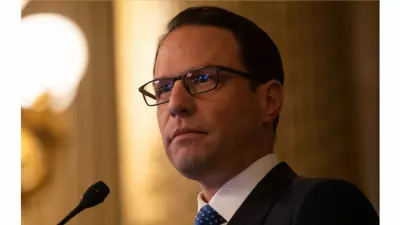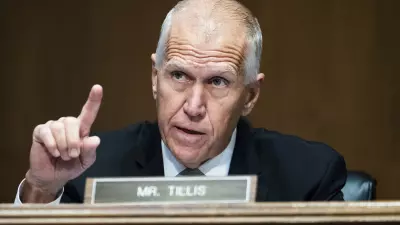So, can Gov. Josh Shapiro win approval for a “commonsense” budget in a town that often defies commonsense?

The early signs, as they say, are encouraging.
In his first budget address to the General Assembly, the Democratic governor pitched a $44.4 billion spending plan that included a little something for everyone.
Republicans who gathered in the ornate House chamber on Tuesday morning clapped when Shapiro talked about cutting businesses taxes. Democrats clapped when he called for raising the state’s minimum wage to $15 an hour.
And everyone rose to their feet when Shapiro pronounced himself “competitive as hell, and sick and tired of losing to other states.”
Shapiro described his spending plan as “commonsense” five times in an endurance-testing speech that stretched more than an hour. And senior administration officials hammered that message home during a briefing with journalists earlier on Tuesday morning.
Later, during the obligatory, post-speech press scrums that are a time-honored rite of budget season, Senate Republicans who will have a big say over the fate of the budget plan didn’t entirely rip Shapiro’s proposal to shreds, as was so often the case under his predecessor, Democratic Gov. Tom Wolf.
Sure, they had misgivings — notably on a budget line that takes its funding from a controversial scheme to reduce carbon emissions. A whole lot of fine print still has to be worked out. And profound disagreements over revenue projections (a hugely wonky but highly critical matter) remain to be settled.
In general, Shapiro said “a lot of things we can get on board with,” Senate President Pro Tempore Kim Ward, R-Westmoreland, said. “We just need to figure out a way to pay for them.”
So, were Ward and her fellow Senate Republicans listening when Shapiro wryly noted that he had “no doubt” that some lawmakers were going to “race out [the] door to find the nearest TV camera and bash the governor,” when he finally stopped talking?
Maybe.
But the more likely answer is that Shapiro, who comes to the top spot with more direct experience with state government than any chief executive in recent memory, did the math, and realized he’d need Republicans onside if he hoped to get any portion of his spending plan over the goal line.
Democrats hold a precarious majority in the state House, while the GOP retains its death grip in the state Senate.
Shapiro, who also formerly served as state attorney general and as an elected county commissioner in Montgomery County, acknowledged as much at the beginning of his speech, crediting former House Speaker Sam Smith, R-Jefferson, with teaching him that the most important equation under the Capitol dome is 102 + 26 +1.
That’s the 102 votes in the House, 26 votes in the Senate, and the single gubernatorial signature it takes to get a bill signed into law.
“As those numbers make clear, it requires a collective effort,” Shapiro told lawmakers. “While we should hold firm to our individual values, that should not preclude us from opening up our minds and our hearts to one another to find common ground so that we can deliver the results the people of Pennsylvania deserve.”
Among those Shapiro will have to win over are House Republicans, who, as is their custom, were more vocally critical than the Senate GOP on Tuesday.
“This puts the Commonwealth of Pennsylvania on a path for financial failure,” Rep. Seth Grove, R-York, said, noting that some economists predict a recession and that Pennsylvania residents are struggling with the effects of inflation.
In his floor remarks, Grove, the ranking Republican on the House Appropriations Committee, said he hoped to see a plan that addressed the state’s looming structural deficit and offered a “sensible plan” to deal with surplus funds.

And while the fundamental arithmetic of the General Assembly may not have changed since Shapiro, also a former House lawmaker from Montgomery County, served in the chamber more than a decade ago, other things have — and in profound ways.
On Tuesday, Shapiro was introduced by the state’s first Black lieutenant governor, Austin Davis, himself a former House lawmaker from Allegheny County. And Davis was handed the speaker’s gavel by the first Black woman in state history to wield it: Rep. Joanna McClinton, D-Philadelphia.
And as Shapiro delivered his remarks, Senate GOP leader Ward, the first woman to lead the upper chamber in its history, looked on from a seat on the dais.
“Today, in this chamber, we are witnessing history for the Commonwealth of Pennsylvania, and we all share in that progress,” Shapiro said, adding that, “it’s also worth noting that, among these two distinguished women leaders — one is a Democrat and one is a Republican.
“And nothing gets done unless a majority in her chamber … and in her chamber agree,” Shapiro continued, gesturing in turn to McClinton and Ward.

Shapiro and the General Assembly face significant problems as they start the nearly four-month-long dance that will end in a signed budget.
Not least among them is the multi-billion dollar challenge of meeting a state court’s mandate to fix Pennsylvania’s broken school funding system.
The order handed down by Commonwealth Court President Judge Renée Cohn Jubelirer was a call to policymakers “to get around the table and come up with a solution that ensures every child has access to a thorough and efficient education,” Shapiro said.
And while it could yet be appealed to the state Supreme Court, Shapiro acknowledged that Jubelirer’sorder was likely to stand.
“And that means we are all acknowledging that the court has ordered us to come to the table and come up with a better system, one that passes constitutional muster,” Shapiro said. “I’m ready to meet you there.”
On Tuesday, some Republicans also appeared willing.
“We can do big things,” Ward said. “That’s why we’re here.”
A commonsense budget? In Harrisburg?
Just maybe.
The Pennsylvania Capital-Star is a nonpartisan, nonprofit news site dedicated to honest and aggressive coverage of state government, politics and policy. The nearly 13 million people who call the commonwealth home depend on their interests being safeguarded by one of the nation’s largest, most expensive, and often inefficient and corrupt full-time state legislatures. The actions of the legislative, executive and judicial branches touch on almost every aspect of Pennsylvanians’ daily lives.







